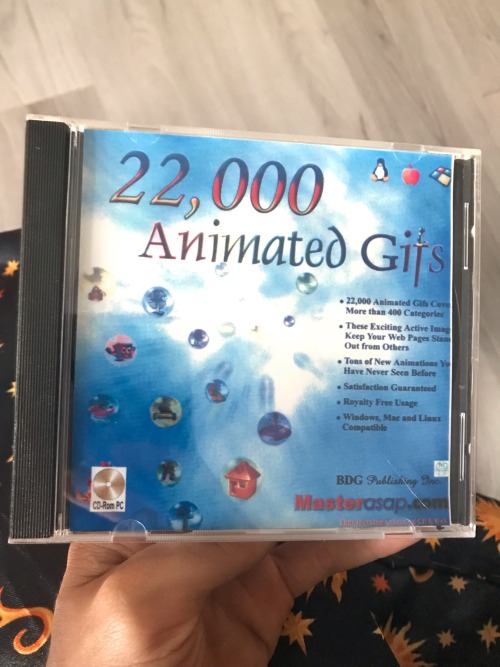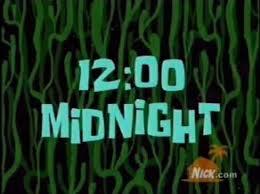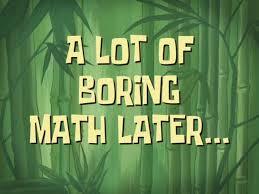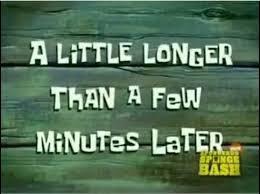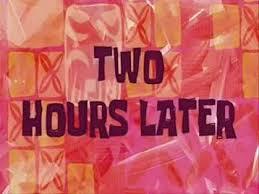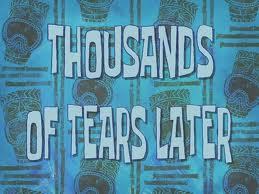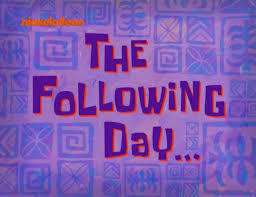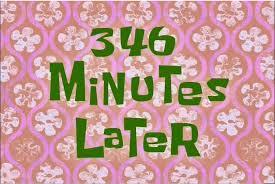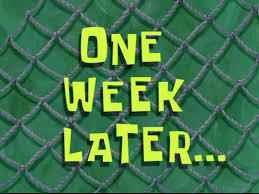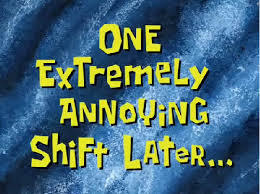
main @starboundsealrb blog for art/writing resources, advice, other important stuff, and the like
143 posts
Latest Posts by kirbysreturntodreamlanddx - Page 2
a list of 100+ buildings to put in your fantasy town
academy
adventurer's guild
alchemist
apiary
apothecary
aquarium
armory
art gallery
bakery
bank
barber
barracks
bathhouse
blacksmith
boathouse
book store
bookbinder
botanical garden
brothel
butcher
carpenter
cartographer
casino
castle
cobbler
coffee shop
council chamber
court house
crypt for the noble family
dentist
distillery
docks
dovecot
dyer
embassy
farmer's market
fighting pit
fishmonger
fortune teller
gallows
gatehouse
general store
graveyard
greenhouses
guard post
guildhall
gymnasium
haberdashery
haunted house
hedge maze
herbalist
hospice
hospital
house for sale
inn
jail
jeweller
kindergarten
leatherworker
library
locksmith
mail courier
manor house
market
mayor's house
monastery
morgue
museum
music shop
observatory
orchard
orphanage
outhouse
paper maker
pawnshop
pet shop
potion shop
potter
printmaker
quest board
residence
restricted zone
sawmill
school
scribe
sewer entrance
sheriff's office
shrine
silversmith
spa
speakeasy
spice merchant
sports stadium
stables
street market
tailor
tannery
tavern
tax collector
tea house
temple
textile shop
theatre
thieves guild
thrift store
tinker's workshop
town crier post
town square
townhall
toy store
trinket shop
warehouse
watchtower
water mill
weaver
well
windmill
wishing well
wizard tower


im sosrry im sick so my brain is cooked i hope thismakes sense but i made this as a guide for my friend who asked how i color my lineart. its about layers
When inventing a fantasy religion a lot of people a) make the mistake of assuming that everyone in fantasy world would worship the same gods and b) assume that polytheistic religions see all of their gods as morally good
The symbolism of flowers
Flowers have a long history of symbolism that you can incorporate into your writing to give subtext.
Symbolism varies between cultures and customs, and these particular examples come from Victorian Era Britain. You'll find examples of this symbolism in many well-known novels of the era!
Amaryllis: Pride
Black-eyed Susan: Justice
Bluebell: Humility
Calla Lily: Beauty
Pink Camellia: Longing
Carnations: Female love
Yellow Carnation: Rejection
Clematis: Mental beauty
Columbine: Foolishness
Cyclamen: Resignation
Daffodil: Unrivalled love
Daisy: Innocence, loyalty
Forget-me-not: True love
Gardenia: Secret love
Geranium: Folly, stupidity
Gladiolus: Integrity, strength
Hibiscus: Delicate beauty
Honeysuckle: Bonds of love
Blue Hyacinth: Constancy
Hydrangea: Frigid, heartless
Iris: Faith, trust, wisdom
White Jasmine: Amiability
Lavender: Distrust
Lilac: Joy of youth
White Lily: Purity
Orange Lily: Hatred
Tiger Lily: Wealth, pride
Lily-of-the-valley: Sweetness, humility
Lotus: Enlightenment, rebirth
Magnolia: Nobility
Marigold: Grief, jealousy
Morning Glory: Affection
Nasturtium: Patriotism, conquest
Pansy: Thoughtfulness
Peony: Bashfulness, shame
Poppy: Consolation
Red Rose: Love
Yellow Rose: Jealously, infidelity
Snapdragon: Deception, grace
Sunflower: Adoration
Sweet Willian: Gallantry
Red Tulip: Passion
Violet: Watchfulness, modesty
Yarrow: Everlasting love
Zinnia: Absent, affection
Ref Recs for Whump Writers
Violence: A Writer’s Guide: This is not about writing technique. It is an introduction to the world of violence. To the parts that people don’t understand. The parts that books and movies get wrong. Not just the mechanics, but how people who live in a violent world think and feel about what they do and what they see done.
Hurting Your Characters: HURTING YOUR CHARACTERS discusses the immediate effect of trauma on the body, its physiologic response, including the types of nerve fibers and the sensations they convey, and how injuries feel to the character. This book also presents a simplified overview of the expected recovery times for the injuries discussed in young, otherwise healthy individuals.
Body Trauma: A writer’s guide to wounds and injuries. Body Trauma explains what happens to body organs and bones maimed by accident or intent and the small window of opportunity for emergency treatment. Research what happens in a hospital operating room and the personnel who initiate treatment. Use these facts to bring added realism to your stories and novels.
10 B.S. Medical Tropes that Need to Die TODAY…and What to Do Instead: Written by a paramedic and writer with a decade of experience, 10 BS Medical Tropes covers exactly that: clichéd and inaccurate tropes that not only ruin books, they have the potential to hurt real people in the real world.
Maim Your Characters: How Injuries Work in Fiction: Increase Realism. Raise the Stakes. Tell Better Stories. Maim Your Characters is the definitive guide to using wounds and injuries to their greatest effect in your story. Learn not only the six critical parts of an injury plot, but more importantly, how to make sure that the injury you’re inflicting matters.
Blood on the Page: This handy resource is a must-have guide for writers whose characters live on the edge of danger. If you like easy-to-follow tools, expert opinions from someone with firsthand knowledge, and you don’t mind a bit of fictional bodily harm, then you’ll love Samantha Keel’s invaluable handbook
Making wine
1) gather fruit like grape or plum that has a visible yeast bloom on it
2) smash whole fruit with fist. Yes, without washing. You don’t want to wash off those wild yeasts. Yes you can leave the seeds/pit
3) stuff smashed fruit into a reasonably sterile container, with a cloth lid to stop spiders and flies from falling in. You can also sterilize a big pickle jar with boiling water and just lightly place the lid on top.
4) top up with distilled (Not Tap Water, which contains chlorine and stuff that kills yeast) water till the mash kinda floats a bit, and add a big dollop of honey, or other sugar source.
5) wait 12-30 hours, while looking for bubbles formation to show yeast is going crazy
6) mop up the sticky foam that bubbled up from your wild yeasts processing the FUCK outta those fruits. Turning fruit sugar into alcohol and CO2 gas
7) after three days, get tired of cleaning up sticky foam overflow residue every morning and night, and scoop out most of the solids
8) after 8 days of fermenting, see bubbles slow down, sediments start to settle, and move liquids to a carboy with a water-air lock.
9) continue to allow fermentation until bubbles stop forming.
10) if it smells awesome, drink and bottle that shit. If it ever starts to smell rancid; toss it.
Congrats, you’ve participated in a traditional brewing art that humans have been doing since 7,000 BC. Like, bronze-age human delights.
If anyone tries to tell you that winemaking is hard, ignore their opinion.
It’s hard to make specific flavors, specific alcohol percentages, and specific appearances. Yeasts present on fruit skins wanna make wine so bad they look stupid.
If you want your wine to be shelf stable and not keep it in the fridge all the time, you gotta measure it’s specific gravity and do a little math conversion. If it’s too low, toss some vodka in there to make a “fortified” wine. Extra alcohol = protection from going bad.


oh you're in a horror film/book and your phone died/has no bars? how boring. I think phones in horror SHOULD work. they should ding only to have the protagonist check and find nothing. they should get calls from somebody you don't know but is still somehow in your contacts. google maps should lead you to one place, no matter what address you type in.
phones are such a big part of our daily lives, removing them from horror removes the horror from our experience. what if the horror felt like it could happen to you, right here, right now? what if it felt like it was already happening?
“This is your daily, friendly reminder to use commas instead of periods during the dialogue of your story,” she said with a smile.
i love love love when artists put a bunch of effort into like human anatomy and facial features and light rendering and drawing fabric folds and shadows and texture and then when they draw a gun they do this

I want to write a book called “your character dies in the woods” that details all the pitfalls and dangers of being out on the road & in the wild for people without outdoors/wilderness experience bc I cannot keep reading narratives brush over life threatening conditions like nothing is happening.
I just read a book by one of my favorite authors whose plots are essentially airtight, but the MC was walking on a country road on a cold winter night and she was knocked down and fell into a drainage ditch covered in ice, broke through and got covered in icy mud and water.
Then she had a “miserable” 3 more miles to walk to the inn.
Babes she would not MAKE it to that inn.
dealing with the worst case scenario
your condom breaks
you feel a lump on your breast
your friends are ignoring you
you’re stranded on an island
you got rejected by a crush
you get into a car accident
you got stung by a bee/wasp
you got fired from your job
you’re in an earthquake
your tattoo gets infected
your house is on fire
you’re lost in the woods
you get arrested abroad
you get robbed
your partner cheated on you
you’re on a ship that’s sinking
you fall into ice
you’re stuck in an elevator
you hit a deer with your car
you have food poisoning
your pet passed away
you fall off of a horse
you or your friend has alcohol poisoning
you have toxic shock syndrome
your house has a gas leak
pssssst hey. hey. free and expansive database of folk and fairy tales. you can thank me later
i thought my laptop was on its last leg because it was running at six billion degrees and using 100% disk space at all times and then i turned off shadows and some other windows effects and it was immediately cured. i just did the same to my roommate's computer and its performance issues were also immediately cured. okay. i guess.
so i guess if you have creaky freezy windows 10/11 try searching "advanced system settings", go to performance settings, and uncheck "show shadows under windows" and anything else you don't want. hope that helps someone else.
Stuff about having monocular vision that people don’t know (in my experience)
1. You only ever sit on one side of a room. (Especially if you’re in class) If you’re blind in your left eye like me, you sit to the left of the room so your right eye has the greatest scope, and there’s not much to your left to look at.
2. Harder time seeing past obstacles. People with two eye vision have the perception of both their eyes blend together for one image. Without this, you only have one eye, so you’re don’t get to see past obstacles the same way. For example if something is blocked for your right eye and not for your left, you can still see it through your left. For people with monocular vision this isn’t possible.
3. People don’t walk on the side of your blind eye. It may just be me, but because I’m blind in my left eye I tend to accidentally bump into people if they’re on my left. So when people walk beside me I naturally go so they’re to my right, or they do, without it being discussed.
4. 3D movies are headaches. Even though we’ve progressed past the red-blue type glasses, 3D just doesn’t work well for monocular vision. (And you know those fun optical illusions? A lot of them don’t work at all- nothing happens!)
5. Things like grabbing a pencil without looking at it are extremely difficult. (Due to lack of depth perception, you have a hard time discerning where things are in 3D space). This also stretches to having bad posture and balance. Meanwhile, things that are flat are relatively easy.
6. You turn your head when you’re looking at something, so your good eye is focused on it. This includes tilting your head at worksheets, TVs, and computer screens- and also people.
7. Seeing in the dark is also much harder, because people rely on their depth perception for it, and without that stuff gets real hard
8. The headaches. Most people with blindness don’t experience total blindness, but instead low vision, where their vision is not able to be used in a way that’s helpful. Your brain tries to merge the images, or use your bad eye to see something in the peripheral. This just makes your head hurt. Much like people who need time to adjust to having glasses due to the headache, getting headaches is common because your vision is always at odds.
9. More susceptible to eye damage. Since you’re not overly aware of your bad eye, you may not notice if the sun is shining directly at it. I tend to squint with my bad eye whenever I’m outside, without thinking about it. Additionally, you’re more wary of anything that could damage your good eye. It’s the only one, so you gotta be careful with it.
10. Also, it makes things really, really weird if there’s a bright light from one side but not from another. There are often after images that float in my vision.
11. Looking at things that are moving can be hard. I can focus on an object, but if a camera is panning in some direction without being focused on one thing in particular, I just stop being able to make sense of what I’m seeing. It becomes very jarring.
12. Sometimes it’s not that your eye necessarily has anything wrong with it, but that your optic nerve isn’t fully connected. So the eye may be healthy, but your brain shut it off, and the connection between the light coming in your eye, and the way the brain interprets it, never fully formed. Funnily enough, I’ve heard that this can cause the connection between your good eye and your brain to be stronger, as it is with mine. For some people it’s the opposite, and it makes both of their eyes worse. Peoples experiences can really differ.
for all the artists out there, here are my favorite resources i use to learn!
Files
The Complete Famous Artist Course
Art Books and Resources
Art, Anatomy, and Color Books
PDF Files of Art Books
YouTube
My YouTube Playlist of Tutorials
How to Draw Facial Features
Drawing and Art Advice
Drawing Lessons
Art Fundamentals
Anatomy of the Human Body
2D Animation
Perspective Drawing
Websites
Pinterest Board for Poses
Another Pinterest Board for Poses
Reference Angle
Figurosity
Sketch Daily
Human Anatomy
Animal Photo References
Humanae - Angélica Dass
Fine Art - Jimmy Nelson
Character Design References
CDR's Twitter Account
iamagco's Twitter Account
taco1704's Twitter Account
takuya_kakikata's Twitter Account
EtheringtonBro's Twitter Account
Drawabox
Color Wheel
Color Palette Cinema
Free Images and Pictures
Free Stock Photos
FILMGRAB
Screen Musings
William Nguyen Light Reference Tool
Animation References - sakugabooru
Animation References - Bodies in Motion
have therians discovered these digging gloves yet


i feel like they’d like them……
therians what are your thoughts
show, don't tell:
anticipation - bouncing legs - darting eyes - breathing deeply - useless / mindless tasks - eyes on the clock - checking and re-checking
frustration - grumbling - heavy footsteps - hot flush - narrowed eyes - pointing fingers - pacing / stomping
sadness - eyes filling up with tears - blinking quickly - hiccuped breaths - face turned away - red / burning cheeks - short sentences with gulps
happiness - smiling / cheeks hurting - animated - chest hurts from laughing - rapid movements - eye contact - quick speaking
boredom - complaining - sighing - grumbling - pacing - leg bouncing - picking at nails
fear - quick heartbeat - shaking / clammy hands - pinching self - tuck away - closing eyes - clenched hands
disappointment - no eye contact - hard swallow - clenched hands - tears, occasionally - mhm-hmm
tiredness - spacing out - eyes closing - nodding head absently - long sighs - no eye contact - grim smile
confidence - prolonged eye contact - appreciates instead of apologizing - active listening - shoulders back - micro reactions
Some of My Favorite Ways to Describe a Character Who’s Sick
pressing their forehead into something cool or comfortable (this could be an array of things. the table, the floor, someones leather jacket, their water bottle, the countertop)
warm to the touch, or heat radiating from them (could be noticed if someone’s gauging their temperature with their hands, hugging them, or just generally touching them)
leaning into people’s touch, or just spontaneously leaning on them (like pressing into their hand when someone’s checking their temp, or just, like, literally walking up and laying their head on them from fatigue. bonus points if the character is usually feral and the other is scared to engage™︎)
falling asleep all over the place (at the dinner table, on their homework, in the car, in the bathroom — just being so exhausted from doing literally nothing)
being overly emotional (crying over things that don’t usually bother them, like their siblings arguing, or their homework, or literally just nothing)
stumbling/careening/staggering into things (the wall, furniture, other people. there is no coordination in feverish brains. running into chairs, hitting the door, falling over the couch, anything and everything)
slurring their words (could be from fatigue or pain. connecting words that shouldn’t be connected, murdering all of their conversations with the excessive use of ‘mm’ and ‘nn’ in place of words) (this is my favorite thing ever)
being overly touchy (basically like a sick kid — just hold them, please. do that thing where you brush their hair back out of their face, or rub circles on their back, or snuggle them. they won’t care. bonus points if this is also the feral character and they refuse to believe it afterwards)
being extremely resistant to touch (flinching away when they usually don’t so someone can’t feel the fever, not letting themselves be touched because they’re so tired they just know they’ll be putty in their hands if they do)
growing aggressive or being extremely rude (it’s a defense mechanism — they feel vulnerable and are afraid of being manipulated or deceived while they’re ill)
whimpering/whining/groaning (this was in my “characters in pain” post but it’s so good that i’m putting it here too. this shite is gold, especially if it’s just an involuntary reaction to their symptoms)
having nightmares caused by a fever and/or delirium (crying and murmuring in their sleep, or being awake but completely out of it and convinced they’re somewhere else)
making themselves as small as possible (curling up into a ball everywhere they lay, hunching over slightly when standing, wrapping their arms around themselves)
TW for vomiting below cut !!
sleeping in the bathroom floor because they keep getting sick over and over (bonus if someone finds them all weak and pitiful. bonus bonus if they find them there in the morning only to learn they’ve been there all night)
using their hands/other body parts to clamp over their mouth so nothing can come out (like pulling their knees up to their chest and using that, or like, their arm, y’know) (~maccreadysbaby who has emetophobia suddenly gets very awkward about this post~) (~yes i have a phobia of puke and still write this happening to my characters, shut up~) (~it’s about the hurt/comfort okay~)
sympathy pukers (people who aren’t the sick ones but get nauseous/vomit when they see someone else throw up) (~aka me~) (~okay I’m done now~)
dry heaving (it’s gross, but good for making your characters absolutely freaking miserable)
rolling/churning/spinning/cramping/ lurching and all those awesome words that describe what stomachs do when sick (i hate these words with a deep, fiery passion. but they’re good for writing or whatever)
the problem with autism is sometimes you want to do something (brave) but you need someone to gently walk you through each step so you know what will happen. and people don’t like doing that
Dealing with Healing and Disability in fantasy: Writing Disability

[ID: An image of the main character from Eragon, a white teenage boy with blond hair in silver armour as he sits, with his hand outstretched. On his hand is a glowing blue mark. He is visibly straining as he attempts to heal a large creature in front of him. /End ID]
I'm a massive fan of the fantasy genre, which is why it's so incredibly frustrating when I see so much resistance to adding disability representation to fantasy works. People's go-to reason for leaving us out is usually something to the effect of "But my setting has magic so disability wouldn't exist, it can just be healed!" so let's talk about magic, specifically healing magic, in these settings, and how you can use it without erasing disability from your story.
Ok, let's start with why you would even want to avoid erasing disability from a setting in the first place. I talked about this in a lot more detail in my post on The Miracle Cure. this line of thinking is another version of this trope, but applied to a whole setting (or at least, to the majority of people in the setting) instead of an individual, so it's going to run into the same issues I discussed there. To summarise the points that are relevant to this particular version of the trope though:
Not every disabled person wants or needs a cure - many of us see our disability as a part of our identity. Do difficulties come with being disabled? absolutely! It's literally part of the definition, but for some people in the disabled community, if you took our disabilities away, we would be entirely different people. While it is far from universal, there is a significant number of us who, if given a magical cure with no strings attached, would not take it. Saying no one in your setting would be disabled because these healing spells exists ignores this part of the community.
It messes with the stakes of your story - Just like how resurrecting characters or showing that this is something that is indeed possible in the setting can leave your audience feeling cheated or like they don't have to worry about a character *actually* ever dying. healing a character's disability, or establishing that disability doesn't exist in your setting because "magic" runs into the same problem. It will leave your readers or viewers feeling like they don't have to worry about your characters getting seriously hurt because it will only be temporary, which means your hero's actions carry significantly less risk, which in turn, lowers the stakes and tension if not handled very, very carefully.
It's an over-used trope - quite plainly and simply, this trope shows up a lot in the fantasy genre, to the point where I'd say it's just overused and kind of boring.
So with the "why should you avoid it" covered, let's look at how you can actually handle the topic.
Limited Access and Expensive Costs
One of the most common ways to deal with healing and disability in a fantasy setting, is to make the healing magic available, but inaccessible to most of the population. The most popular way to do that is by making the services of a magical healer capable of curing a disability really expensive to the point that most people just can't afford it. If this is the approach you're going to use, you also typically have to make that type of magic quite rare. To use D&D terms, if every first level sorcerer, bard, cleric and druid can heal a spinal injury, it's going to result in a lot of people who are able to undercut those massive prices and the expense will drop as demand goes down. If that last sentence didn't give you a hint, this is really popular method in stories that are critiquing capitalistic mindsets and ideologies, and is most commonly used by authors from the USA and other countries with a similar medical system, since it mirrors a lot of the difficulties faced by disabled Americans. If done right, this approach can be very effective, but it does need to be thought through more carefully than I think people tend to do. Mainly because a lot of fantasy stories end with the main character becoming rich and/or powerful, and so these prohibitively expensive cure become attainable by the story's end, which a lot of authors and writer's just never address. Of course, another approach is to make the availability of the magic itself the barrier. Maybe there just aren't that many people around who know the magic required for that kind of healing, so even without a prohibitive price tag, it's just not something that's an option for most people. If we're looking at a D&D-type setting, maybe you need to be an exceptionally high level to cast the more powerful healing spell, or maybe the spell requires some rare or lost material component. I'd personally advise people to be careful using this approach, since it often leads to stories centred around finding a miracle cure, which then just falls back into that trope more often than not.
Just outright state that some characters don't want/need it
Another, admittedly more direct approach, is to make it that these "cures" exist and are easily attainable, but to just make it that your character or others they encounter don't want or need it. This approach works best for characters who are born with their disabilities or who already had them for a long time before a cure was made available to them. Even within those groups though, this method works better with some types of characters than others depending on many other traits (personality, cultural beliefs, etc), and isn't really a one-size-fits-all solution, but to be fair, that's kind of the point. Some people will want a cure for their disabilities, others are content with their body's the way they are. There's a few caveats I have with this kind of approach though:
you want to make sure you, as the author, understand why some people in real life don't want a cure, and not just in a "yeah I know these people exist but I don't really get it" kind of way. I'm not saying you have to have a deep, personal understanding or anything, but some degree of understanding is required unless you want to sound like one of those "inspirational" body positivity posts that used to show up on Instagram back in the day.
Be wary when using cultural beliefs as a reasoning. It can work, but when media uses cultural beliefs as a reason for turning down some kind of cure, it's often intending to critique extreme beliefs about medicine, such as the ones seen in some New Age Spirituality groups and particularly intense Christian churches. As a general rule of thumb, it's probably not a good idea to connect these kinds of beliefs to disabled people just being happy in their bodies. Alternatively, you also need to be mindful of the "stuck in time" trope - a trope about indigenous people who are depicted as primitive or, as the name suggests, stuck in an earlier time, for "spurning the ways of the white man" which usually includes medicine or the setting's equivalent magic. I'm not the best person to advise you on how to avoid this specific trope, but my partner (who's Taino) has informed me of how often it shows up in fantasy specifically and we both thought it was worth including a warning at least so creators who are interested in this method know to do some further research.
Give the "cures" long-lasting side effects
Often in the real world, when a "cure" for a disability does exist, it's not a perfect solution and comes with a lot of side effects. For example, if you loose part of your arm in an accident, but you're able to get to a hospital quickly with said severed arm, it can sometimes be reattached, but doing so comes at a cost. Most people I know who had this done had a lot of issues with nerve damage, reduced strength, reduced fine-motor control and often a great deal of pain with no clear source. Two of the people I know who's limbs were saved ended up having them optionally re-amputated only a few years later. Likewise, I know many people who are paraplegics and quadriplegics via spinal injuries, who were able to regain the use of their arms and/or legs. However, the process was not an easy one, and involved years of intense physiotherapy and strength training. For some of them, they need to continue to do this work permanently just to maintain use of the effected limbs, so much so that it impacts their ability to do things like work a full-time job and engage in their hobbies regularly, and even then, none of them will be able bodied again. Even with all that work, they all still experience reduced strength and reduced control of the limbs. depending on the type, place and severity of the injury, some people are able to get back to "almost able bodied" again - such was the case for my childhood best friend's dad, but they often still have to deal with chronic pain from the injury or chronic fatigue.
Even though we are talking about magic in a fantasy setting, we can still look to real-life examples of "cures" to get ideas. Perhaps the magic used has a similar side effect. Yes, your paraplegic character can be "cured" enough to walk again, but the magic maintaining the spell needs a power source to keep it going, so it draws on the person's innate energy within their body, using the very energy the body needs to function and do things like move their limbs. They are cured, but constantly exhausted unless they're very careful, and if the spell is especially strong, the body might struggle to move at all, resulting in something that looks and functions similar to the nerve damage folks with spinal injuries sometimes deal with that causes that muscle weakness and motor control issues. Your amputee might be able to have their leg regrown, but it will always be slightly off. The regrown leg is weaker and causes them to walk with a limp, maybe even requiring them to use a cane or other mobility aid.
Some characters might decide these trade-offs are worth it, and while this cures their initial disability, it leaves them with another. Others might simply decide the initial disability is less trouble than these side effects, and choose to stay as they are.
Consider if these are actually cures
Speaking of looking to the real world for ideas, you might also want to consider whether these cures are doing what the people peddling them are claiming they do. Let's look at the so-called autism cures that spring up every couple of months as an example.
Without getting into the… hotly debated specifics, there are many therapies that are often labelled as "cures" for autism, but in reality, all they are doing is teaching autistic people how to make their autistic traits less noticeable to others. This is called masking, and it's a skill that often comes at great cost to an autistic person's mental health, especially when it's a behaviour that is forced on them. Many of these therapies give the appearance of being a cure, but the disability is still there, as are the needs and difficulties that come with it, they're just hidden away. From an outside perspective though, it often does look like a success, at least in the short-term. Then there are the entirely fake cures with no basis in reality, the things you'll find from your classic snake-oil salesmen. Even in a fantasy setting where real magic exists, these kinds of scams and misleading treatments can still exist. In fact, I think it would make them even more common than they are in the real world, since there's less suspension of disbelief required for people to fall for them. "What do you mean this miracle tonic is a scam? Phil next door can conjure flames in his hand and make the plants grow with a snap of his fingers, why is it so hard to believe this tonic could regrow my missing limb?"
I think the only example of this approach I've seen, at least recently, is from The Owl House. The magic in this world can do incredible things, but it works in very specific and defined ways. Eda's curse (which can be viewed as an allegory for many disabilities and chronic illnesses) is seemingly an exception to this, and as such, nothing is able to cure it. Treat it, yes, but not cure it. Eda's mother doesn't accept this though, and seeks out a cure anyway and ends up falling for a scam who's "treatments" just make things worse.
In your own stories, you can either have these scams just not work, or kind of work, but in ways that are harmful and just not worth it, like worse versions of the examples in the previous point. Alternatively, like Eda, it's entirely reasonable that a character who's been the target of these scams before might just not want to bother anymore. Eda is a really good example of this approach handled in a way that doesn't make her sad and depressed about it either. She's tried her mum's methods, they didn't work, and now she's found her own way of dealing with it that she's happy with. She only gets upset when her boundaries are ignored by Luz and her mother.
Think about how the healing magic is actually working
If you have a magic system that leans more on the "hard magic" side of things, a great way to get around the issue of healing magic erasing disability is to stop and think about how your healing magic actually works.
My favourite way of doing this is to make healing magic work by accelerating the natural processes of your body. Your body will, given enough time (assuming it remains infection-free) close a slash from a sword and mend a broken bone, but it will never regrow it's own limbs. It will never heal damage to it's own spinal cord. It will never undo whatever causes autism or fix it's own irregularities. Not without help. Likewise, healing magic alone won't do any of these things either, it's just accelerating the existing process and usually, by extension making it safer, since a wound staying open for an hour before you get to a healer is much less likely to get infected than one that slowly and naturally heals over a few weeks. In one of my own works, I take this even further by making it that the healing magic is only accelerating cell growth and repair, but the healer has to direct it. In order to actually heal, the healer needs to know the anatomy of what they're fixing to the finest detail. A spell can reconnect a torn muscle to a bone, but if you don't understand the structures that allow that to happen in the first place, you're likely going to make things worse. For this reason, you won't really see people using this kind of magic to, say, regrow limbs, even though it technically is possible. A limb is a complicated thing. The healer needs to be able to perfectly envision all the bones, the cartilage, the tendons and ligaments, the muscles (including the little ones, like those found in your skin that make your hair stand on end and give you goose bumps), the fat and skin tissues, all the nerves, all the blood vessels, all the structures within the bone that create your blood. Everything, and they need to know how it all connects, how it is supposed to move and be able to keep that clearly in their mind simultaneously while casting. Their mental image also has to match with the patient's internal "map" of the body and the lost limb, or they'll continue to experience phantom limb sensation even if the healing is successful. It's technically possible, but the chances they'll mess something up is too high, and so it's just not worth the risk to most people, including my main character.
Put Restrictions on the magic
This is mostly just the same advice as above, but for softer magic systems. put limits and restrictions on your healing magic. These can be innate (so things the magic itself is just incapable of doing) or external (things like laws that put limitations on certain types of magic and spells).
An example of internal restriction can be seen in how some people interpret D&D's higher level healing spells like regenerate (a 7th level spell-something most characters won't have access to for quite some time). The rules as written specify that disabilities like lost limbs can be healed using this spell, but some players take this to mean that if a character was born with the disability in question, say, born without a limb, regenerate would only heal them back to their body's natural state, which for them, is still disabled.
An external restriction would be that your setting has outlawed healing magic, perhaps because healing magic carries a lot of risks for some reason, eithe to the caster or the person being healed, or maybe because the healing magic here works by selectively reviving and altering the function of cells, which makes it a form of necromancy, just on a smaller scale. Of course, you can also use the tried and true, "all magic is outlawed" approach too. In either case, it's something that will prevent some people from being able to access it, despite it being technically possible. Other external restrictions could look like not being illegal, per say, but culturally frowned upon or taboo where your character is from.
But what if I don't want to do any of this?
Well you don't have to. These are just suggestions to get you thinking about how to make a world where healing magic and disability exist, but they aren't the only ways. Just the ones I thought of.
Of course, if you'd still rather make a setting where all disability is cured because magic and you just don't want to think about it any deeper, I can't stop you. I do however, want to ask you to at least consider where you are going to draw the line. Disability, in essence, is what happens when the body stops (or never started) functioning "normally". Sometimes that happens because of an injury, sometimes it's just bad luck, but the boundary between disabled and not disabled is not as solid as I think a lot of people expect it to be, and we as a society have a lot of weird ideas about what is and isn't a disability that just, quite plainly and simply, aren't consistent. You have to remember, a magic system won't pick and choose the way we humans do, it will apply universally, regardless of our societal hang-ups about disability.
What do I mean about this?
Well, consider for a moment, what causes aging? it's the result of our body not being able to repair itself as effectively as it used to. It's the body not being able to perform that function "normally". So in a setting where all disability is cured, there would be no aging. No elderly people. No death from old age. If you erase disability, you also erase natural processes like aging. magic won't pick and choose like that, not if you want it to be consistent.
Ok, ok, maybe that's too much of a stretch, so instead, let's look at our stereotypical buff hero covered in scars because he's a badass warrior. but in a world where you can heal anything, why would anything scar? Even if it did, could another healing spell not correct that too? Scars are part of the body's natural healing process, but if no natural healing occurred, why would a scar form? Scars are also considered disabling in and of themselves too, especially large ones, since they aren't as flexible or durable as normal skin and can even restrict growth and movement.
Even common things like needing glasses are, using this definition of disability at least, a disability. glasses are a socially accepted disability aid used to correct your eyes when they do not function "normally".
Now to be fair, in reality, there are several definitions of disability, most of which include something about the impact of society. For example, in Australia (according to the Disability Royal Commission), we define disability as "An evolving concept that results from the interaction between a person with impairment(s) and attitudinal and environmental barriers that hinder their full and effective participation in society on an equal basis with others." - or in laymen's terms, the interaction between a person's impairment and societal barriers like people not making things accessible or holding misinformed beliefs about your impairment (e.g. people in wheelchairs are weaker than people who walk). Under a definition like this, things like scars and needing glasses aren't necessarily disabilities (most of the time) but that's because of how our modern society sees them. The problem with using a definition like this though to guide what your magic system will get rid of, is that something like a magic system won't differentiate between an "impairment" that has social impacts that and one that doesn't. It will still probably get rid of anything that is technically an example of your body functioning imperfectly, which all three of these things are. The society in your setting might apply these criteria indirectly, but really, why would they? Very few people like the side effects of aging on the body (and most people typically don't want to die), the issues that come with scars or glasses are annoying (speaking as someone with both) and I can see a lot of people getting rid of them when possible too. If they don't then it's just using the "not everyone wants it approach" I mentioned earlier. If there's some law or some kind of external pressure to push people away from fixing these more normalised issues, then it's using the "restrictions" method I mentioned earlier too.
Once again, you can do whatever you like with your fantasy setting, but it's something I think that would be worth thinking about at least.
I stumbled upon a website that allows you to blend any colors evenly no matter how opposite on the spectrum they are.
sharing the knowledge
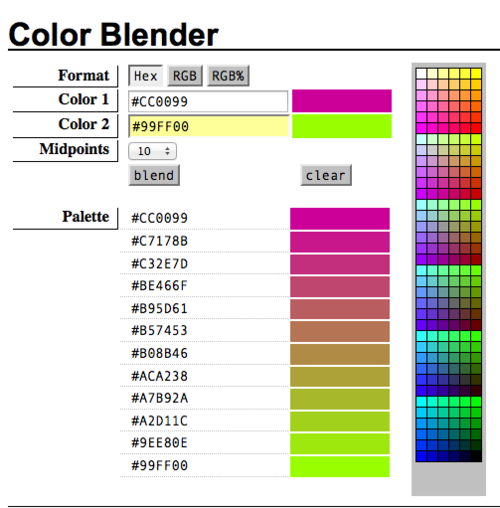
very helpful art resource
You don’t have to pay for that fancy worldbuilding program
As mentioned in this post about writing with executive dysfunction, if one of your reasons to keep procrastinating on starting your book is not being able to afford something like World Anvil or Campfire, I’m here to tell you those programs are a luxury, not a necessity: Enter Google Suite (not sponsored but gosh I wish).
MS Office offers more processing power and more fine-tuning, but Office is expensive and only autosaves to OneDrive, and I have a perfectly healthy grudge against OneDrive for failing to sync and losing 19k words of a WIP that I never got back.
Google’s sync has never failed me, and the Google apps (at least for iPhone) aren’t nearly as buggy and clunky as Microsoft’s. So today I’m outlining the system I used for my upcoming fantasy novel with all the helpful pictures and diagrams. Maybe this won’t work for you, maybe you have something else, and that’s okay! I refuse to pay for what I can get legally for free and sometimes Google’s simplicity is to its benefit.
The biggest downside is that you have to manually input and update your data, but as someone who loves organizing and made all these willingly and for fun, I don’t mind.
So. Let’s start with Google Sheets.
The Character Cheat Sheet:

I organized it this way for several reasons:
I can easily see which characters belong to which factions and how many I have named and have to keep up with for each faction
All names are in alphabetical order so when I have to come up with a new name, I can look at my list and pick a letter or a string of sounds I haven’t used as often (and then ignore it and start 8 names with A).
The strikethrough feature lets me keep track of which characters I kill off (yes, I changed it, so this remains spoiler-free)
It’s an easy place to go instead of scrolling up and down an entire manuscript for names I’ve forgotten, with every named character, however minor their role, all in one spot
Also on this page are spare names I’ll see randomly in other media (commercials, movie end credits, etc) and can add easily from my phone before I forget
Also on this page are my summary, my elevator pitch, and important character beats I could otherwise easily mess up, it helps stay consistent
*I also have on here not pictured an age timeline for all my vampires so I keep track of who’s older than who and how well I’ve staggered their ages relative to important events, but it’s made in Photoshop and too much of a pain to censor and add here
On other tabs, I keep track of location names, deities, made-up vocabulary and definitions, and my chapter word count.
The Word Count Guide:

*3/30 Edit to update this chart to its full glory. Column 3 is a cumulative count. Most of what I write breaks 100k and it's fun watching the word count rise until it boils over.
This is the most frustrating to update manually, especially if you don’t have separate docs for each chapter, but it really helps me stay consistent with chapter lengths and the formula for calculating the average and rising totals is super basic.
Not that all your chapters have to be uniform, but if you care about that, this little chart is a fantastic visualizer.
If you have multiple narrators, and this book does, you can also keep track of how many POVs each narrator has, and how spread out they are. I didn’t do that for this book since it’s not an ensemble team and matters less, but I did for my sci-fi WIP, pictured below.

As I was writing that one, I had “scripted” the chapters before going back and writing out all the glorious narrative, and updated the symbols from “scripted” to “finished” accordingly.
I also have a pie chart that I had to make manually on a convoluted iPhone app to color coordinate specifically the way I wanted to easily tell who narrates the most out of the cast, and who needs more representation.
—
Google Docs
Can’t show you much here unfortunately but I’d like to take an aside to talk about my “scene bits” docs.
It’s what it says on the tin, an entire doc all labeled with different heading styles with blurbs for each scene I want to include at some point in the book so I can hop around easily. Whether they make it into the manuscript or not, all practice is good practice and I like to keep old ideas because they might be useful in unsuspecting ways later.
Separate from that, I keep most of my deleted scenes and scene chunks for, again, possible use later in a “deleted scenes” doc, all labeled accordingly.
When I designed my alien language for the sci-fi series, I created a Word doc dictionary and my own "translation" matrix, for easy look-up or word generation whenever I needed it (do y'all want a breakdown for creating foreign languages? It's so fun).
Normally, as with my sci-fi series, I have an entire doc filled with character sheets and important details, I just… didn’t do that for this book. But the point is—you can still make those for free on any word processing software, you don’t need fancy gadgets.
—
I hope this helps anyone struggling! It doesn’t have to be fancy. It doesn’t have to be expensive. Everything I made here, minus the aforementioned timeline and pie chart, was done with basic excel skills and the paint bucket tool. I imagine this can be applicable to games, comics, what have you, it knows no bounds!
Now you have one less excuse to sit down and start writing.
yknow i never noticed the sheer rareness of images having ids or alt text on this website until i started adding alt text to my art (and trying to remember to add it to any images i post in general, especially text screenshots) and that makes me kinda sad














